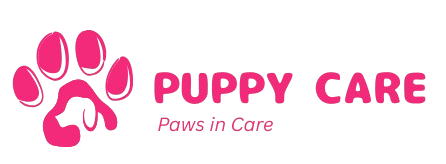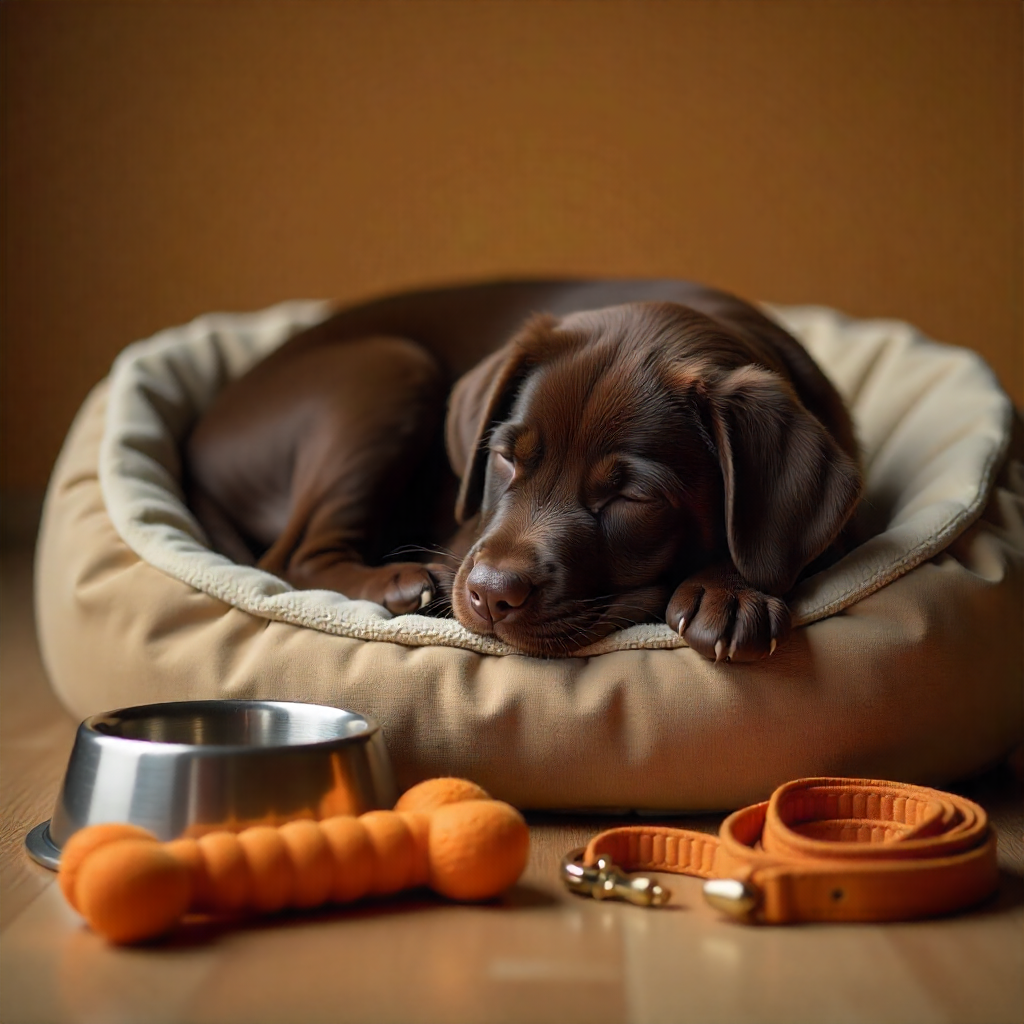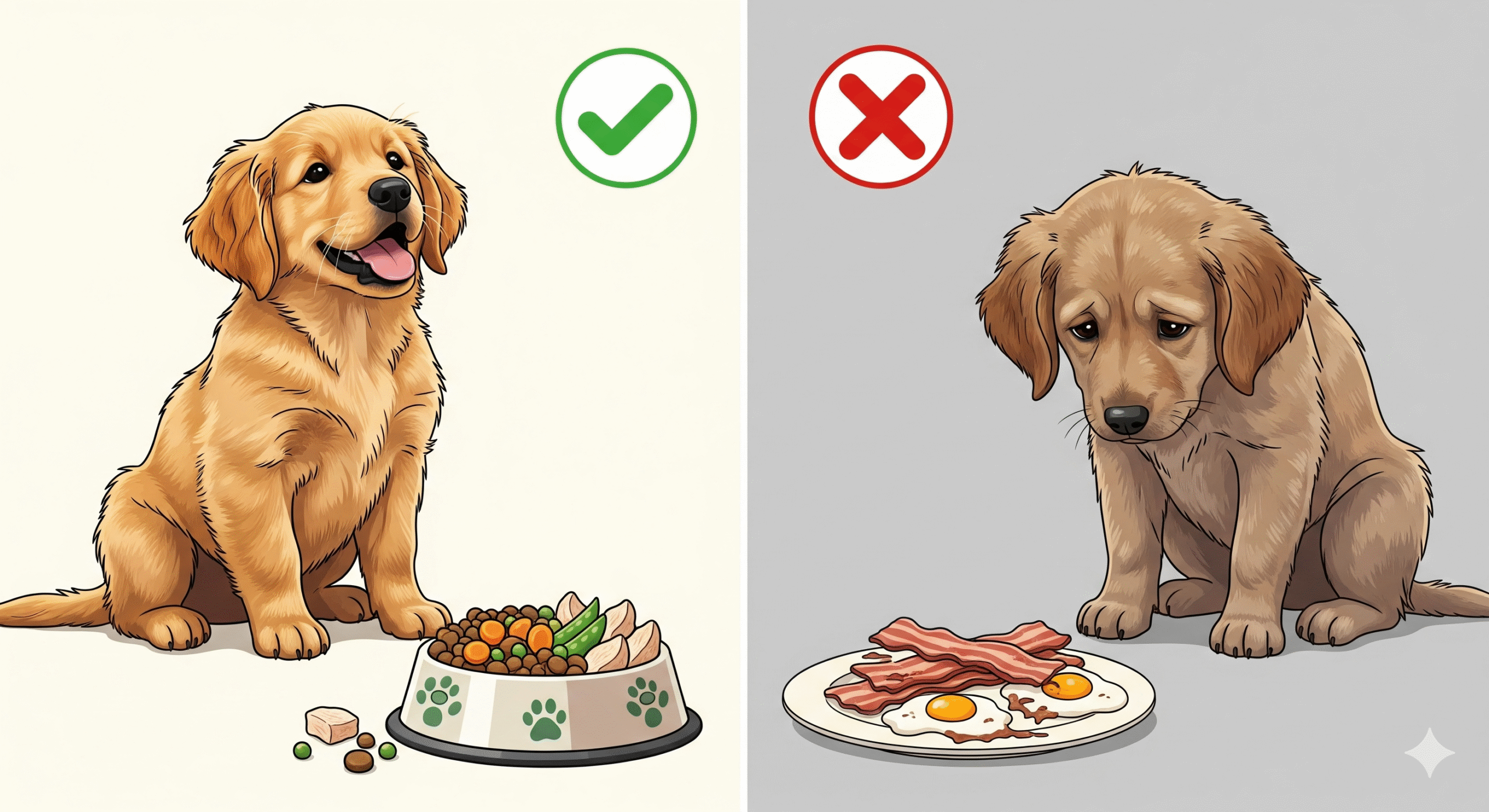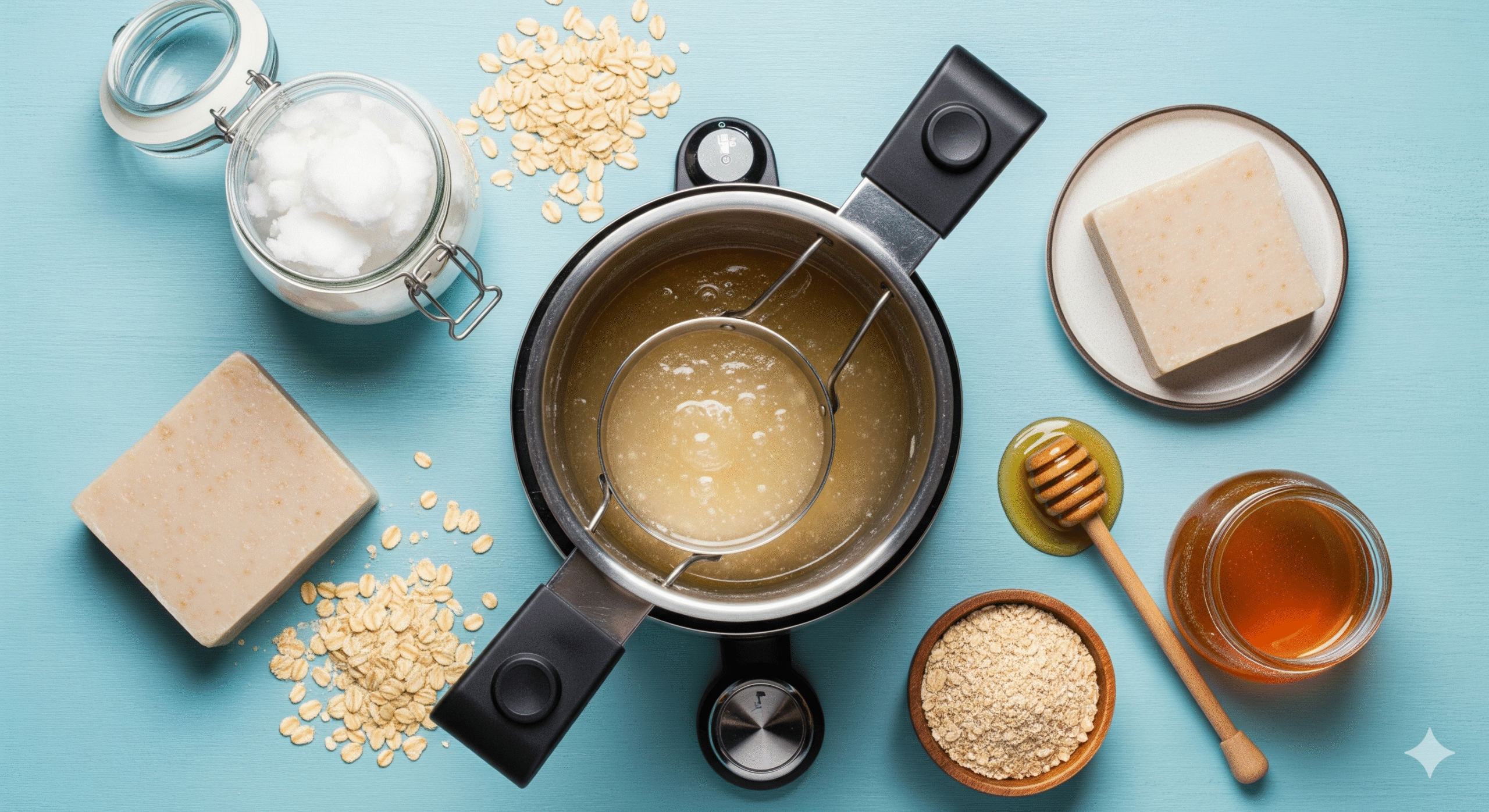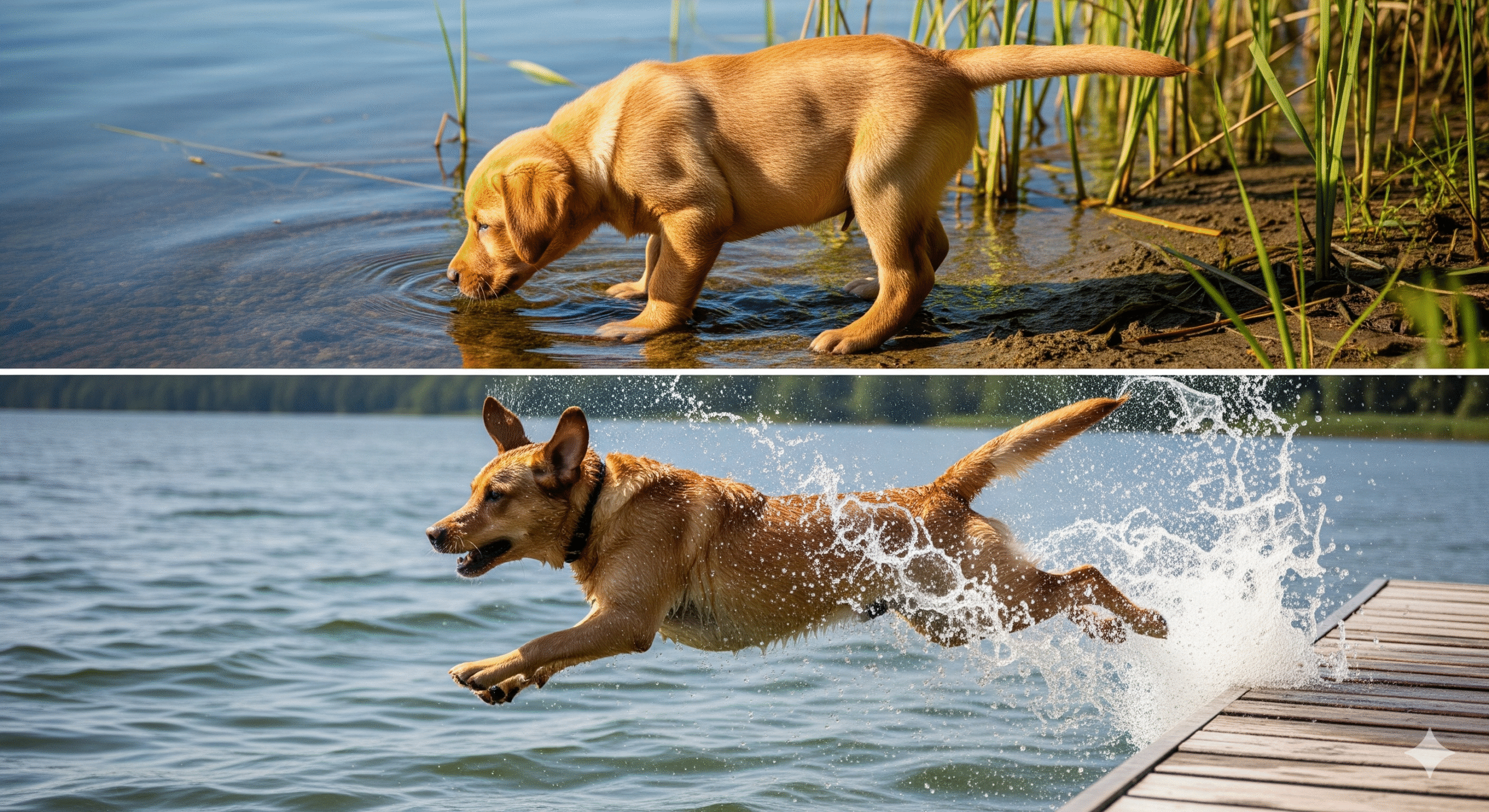Bringing home a wiggly, joyful Labrador Retriever puppy is one of life’s greatest joys. Those big paws, soft puppy breath, and boundless curiosity are utterly infectious. But with great cuteness comes great responsibility! Labs are energetic, intelligent, and grow rapidly, which means their puppyhood requires specific care to set them up for a long, healthy, and well-behaved life.
This comprehensive labrador puppy guide is your one-stop resource. We’ll walk you through everything from pre-puppy preparation to essential training, health, and nutrition. Consider this your roadmap to navigating the wonderful, sometimes chaotic, first year with your new best friend. Let’s dive in! 🐶💕
Before You Bring Your Puppy Home: The Essential Prep List 🏡
Preparation is key to a smooth transition for both you and your pup. A little work now prevents a lot of stress later.
Puppy-Proofing Your Space
Labrador puppies explore the world with their mouths. Assume anything within reach will be chewed. To keep them safe:
- Secure electrical cords with cord protectors or hide them behind furniture.
- Remove toxic plants like lilies, sago palms, and poinsettias.
- Pick up small objects children’s toys, remote controls, and shoes are all choking hazards.
- Use baby gates to block off unsafe areas like stairs or rooms you want to be off-limits.
Essential Supplies Checklist ✅
Don’t get caught empty-handed! Have these items ready on day one:
- Sturdy Crate: For labrador retriever training, safe travel, and providing a den-like sanctuary.
- Quality Food & Bowls: Stainless steel or ceramic bowls are best. Choose a large-breed puppy formula.
- Collar, Harness & Leash: An ID tag with your phone number is non-negotiable.
- Chew Toys & Puzzles: Labs need to chew! Provide sturdy toys like Kongs to save your furniture.
- Comfy Bed: Choose a bed with a removable, washable cover.
- Puppy Potty Pads & Enzymatic Cleaner: For accidents, an enzymatic cleaner is a must to eliminate odors.
The First Few Days: Settling In and Building Trust 🤗
Your puppy has just left their mom and littermates. The first week is about building confidence and trust, not strict rules.
- Keep it Calm: Limit visitors and loud noises. Give your pup plenty of quiet time to adjust.
- Start a Routine Immediately: Dogs thrive on predictability. Feed, potty, walk, and nap at the same times each day. This is the foundation of easy housebreaking.
- Introduce the Crate Positively: Make the crate a happy place with treats, meals, and soft blankets. Never use it for punishment.
Nutrition & Feeding: Fueling Your Growing Lab 🦴
A proper labrador puppy diet is critical for their development. Labs are prone to obesity and joint issues, so getting nutrition right from the start is vital.
Choosing the Right Food
- Look for “Large Breed Puppy” Formula: These foods are specifically balanced to control calcium and phosphorus levels, promoting steady growth and protecting developing joints.
- High-Quality Protein Source: The first ingredient should be a named meat (e.g., chicken, salmon, lamb).
- Follow Feeding Guidelines: Use the chart on the bag as a starting point, but adjust based on your puppy’s body condition. Your vet is your best resource here.
Feeding Schedule
Puppies have small stomachs and need to eat frequently.
- 8-12 weeks: 4 meals per day
- 3-6 months: 3 meals per day
- 6+ months: 2 meals per day
Pro Tip: Avoid free-feeding (leaving food out all day). Scheduled meals help with potty training and allow you to monitor appetite, which is a key health indicator.
Health & Wellness: A Proactive Puppy Vaccination Schedule 🩺
Keeping your pup healthy is your top priority. Establishing a relationship with a veterinarian immediately is a non-negotiable step.
Vaccinations and Vet Visits
Your vet will tailor a puppy vaccination schedule, but it typically looks like this:
- 6-8 weeks: DHPP (Distemper, Hepatitis, Parainfluenza, Parvovirus)
- 10-12 weeks: DHPP booster, Bordetella
- 16-18 weeks: DHPP booster, Rabies
- 12-16 months: DHPP booster, Rabies booster
LSI Keyword Integration: Discussing this schedule with your vet is a core part of responsible labrador puppy health management.
Common Labrador Health Considerations
- Hip & Elbow Dysplasia: A genetic developmental disorder of the joints. Keeping your pup at a lean weight is the best preventative measure.
- Obesity: Labs are food-motivated! Strict portion control and avoiding excessive treats are crucial.
- Ear Infections: Their floppy ears trap moisture. Check and clean their ears weekly with a vet-approved solution.
Training & Socialization: Raising a Well-Mannered Canine Citizen 🎓
Labrador retriever training should start the day you bring them home. They are brilliant and eager to please, making them highly trainable.
Foundational Obedience Training
- Positive Reinforcement: Use treats, praise, and play to reward desired behaviors. Labs respond incredibly well to this method.
- Focus on Key Commands: Start with “sit,” “come,” “stay,” “down,” and “leave it.” Keep sessions short (5-10 minutes) and fun!
- Potty Training: Take them out constantly—after waking up, after eating, after playing, and every 1-2 hours. Praise them lavishly when they go in the right spot.
The Critical Importance of Socialization 🌍
Puppy socialization is about building positive associations with the world. The prime window is between 3 and 16 weeks of age.
- Expose Them Gently: Introduce them to different people (men, women, children, people with hats), safe dogs, sounds (vacuum, traffic), and surfaces (grass, tile, gravel).
- Make it Positive: Never force a scared puppy. Let them observe from a distance and reward them with treats for calm behavior.
- Puppy Classes: A well-run puppy kindergarten class is invaluable for socialization and basic training.
Exercise & Play: Channeling That Labrador Energy! ⚽
A tired Lab is a good Lab! But it’s important to exercise them appropriately while they are still growing.
- The 5-Minute Rule: A general guideline is 5 minutes of structured exercise per month of age, twice a day. So, a 3-month-old puppy gets 15 minutes of play, twice a day.
- Low-Impact Activities: Avoid forced running on hard surfaces or jumping from heights, which can harm developing joints. Focus on swimming (a Lab favorite!), short walks on soft ground, and fetch on grass.
- Mental Stimulation: Training sessions, food puzzles, snuffle mats, and hide-and-seek games are excellent for tiring out a puppy’s brain.
Grooming: More Than Just Good Looks ✨
Labs have a double coat that sheds—a lot! Regular grooming keeps them comfortable and your home a little less furry.
- Brushing: Brush 2-3 times a week with a slicker brush or undercoat rake. During shedding season (spring and fall), daily brushing is your new best friend.
- Bathing: Bathe every 4-6 weeks or when they get dirty. Use a gentle, dog-specific shampoo to protect their natural oils.
- Nail Trimming: Trim nails every 2-3 weeks. If you hear clicking on the floor, they’re too long.
- Teeth Brushing: Aim to brush their teeth several times a week to prevent dental disease. Start this habit early!
Conclusion: Your Journey Begins Now!
Raising a Labrador Retriever puppy is an adventure filled with laughter, a few chewed-up shoes, and endless amounts of love. It requires patience, consistency, and a whole lot of heart. By following this labrador puppy guide, you are investing in a future of companionship with a loyal, well-adjusted, and joyful dog.
The days are long, but the years are short. Embrace the puppy chaos, celebrate the small victories, and know that every bit of effort you put in now will be returned tenfold in the form of wet-nosed kisses and unwavering devotion for years to come.
Ready to Learn More?
The Appeal of the French Bulldog
There’s no denying the French Bulldog’s appeal: they are playful, affectionate clowns with a loyal temperament. They require relatively little exercise, making them ideal for less active owners or those living in urban settings. Their small size and minimal shedding add to their allure as perfect indoor companions.
However, their popularity has unfortunately led to irresponsible breeding practices. Potential owners must do thorough research to avoid supporting puppy mills and to be prepared for breed-specific health concerns. Arm yourself with knowledge by reading French Bulldog Puppies: What to Know Before Buying.
Learn more: French Bulldog Guide